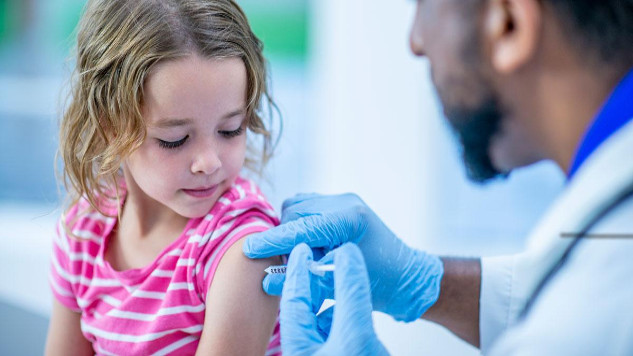
Americans have less confidence in vaccines to address a variety of illnesses than they did just a year or two ago, and more people accept misinformation about vaccines and COVID-19, according to a recent health survey.
The survey conducted October 5 to 12, 2023, with a panel of over 1,500 United States adults, finds that the number of Americans who think vaccines approved for use in the United States are safe dropped to 71% from 77% in April 2021. The percentage of adults who don’t think vaccines approved in the US are safe grew to 16% from 9% over that same two-and-a-half-year period, report the researchers from the Annenberg Public Policy Center (APPC) of the University of Pennsylvania.
Despite concerted efforts by news organizations, public health officials, scientists, and fact-checkers (including APPC’s project FactCheck.org) to counter viral misinformation about vaccination and COVID-19, the survey finds that some false or unproven claims about them are more widely accepted today than two to three years ago. Although the proportion of the American public that holds these beliefs is, in some cases, still relatively small, the survey finds growth in misinformation acceptance across many questions touching on vaccination.
“There are warning signs in these data that we ignore at our peril,” says Kathleen Hall Jamieson, director of the Annenberg Public Policy Center and director of the survey. “Growing numbers now distrust health-protecting, life-saving vaccines.”
COVID-19 vaccine: Less than two-thirds of Americans (63%) think is it safer to get the COVID-19 vaccine than the COVID-19 disease, a decline from 75% in April 2021.
Ivermectin: Over a quarter (26%) incorrectly think ivermectin is an effective treatment for COVID-19, up dramatically from 10% in September 2021.
Autism: A small but growing number (16%) believe that “increased vaccines are why so many kids have autism these days,” up from 10% in April 2021.
Return to normal: Asked when they expected to return to their normal, pre-COVID life, two-thirds (67%) say they already have. Three-quarters (75%) say they never or rarely wear a mask or face covering.
The survey data come from the 13th wave of a nationally representative panel of 1,559 US adults, first empaneled in April 2021, conducted for the Annenberg Public Policy Center by SSRS, an independent market research company. This wave of the Annenberg Science and Public Health Knowledge (ASAPH) survey was fielded October 5 to 12, 2023, and has a margin of sampling error (MOE) of ± 3.4 percentage points at the 95% confidence level. All figures are rounded to the nearest whole number and may not add to 100%. Combined subcategories may not add to totals in the topline and text due to rounding.
The policy center has been tracking the American public’s knowledge, beliefs, and behaviors regarding vaccination, COVID-19, flu, RSV, and other consequential health issues through this survey panel over the past two-and-a-half years.
Download the topline and the methods report.
Source: Penn























